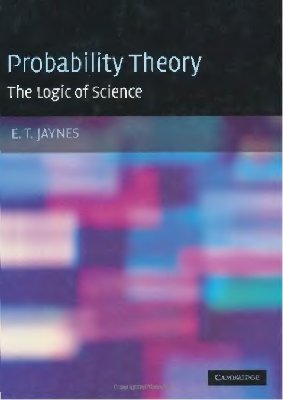For many years there has been controversy over "frequentist" versus
"Bayesian" methods of inference, in which the writer has been an
outspoken partisan on the Bayesian side. The record of this up to
1981 is given in an earlier book (3aynes, 1983). In these old works
there was a strong tendency, on both sides, to argue on the level
of philosophy or ideology. We can now hold ourselves somewhat aloof
from this because, thanks to recent work, there is no longer any
need to appeal to such arguments. We are now in possession of
proven theorems and masses of worked-out numerical examples. As a
result, the superiority of Bayesian methods is now a thoroughly
demonstrated fact in a hundred different areas. One can argue with
a philosophy; it is not so easy to argue with a computer printout,
which says to us: "Independently of all your philosophy, here are
the facts of actual performance. " We point this out in some detail
whenever
there is a substantial difference in the final results. Thus we continue to argue vigorously for the Bayesian methods; but we ask the reader to note that our arguments now proceed by citing facts rather than proclaiming a philosophical or ideological position.
there is a substantial difference in the final results. Thus we continue to argue vigorously for the Bayesian methods; but we ask the reader to note that our arguments now proceed by citing facts rather than proclaiming a philosophical or ideological position.

